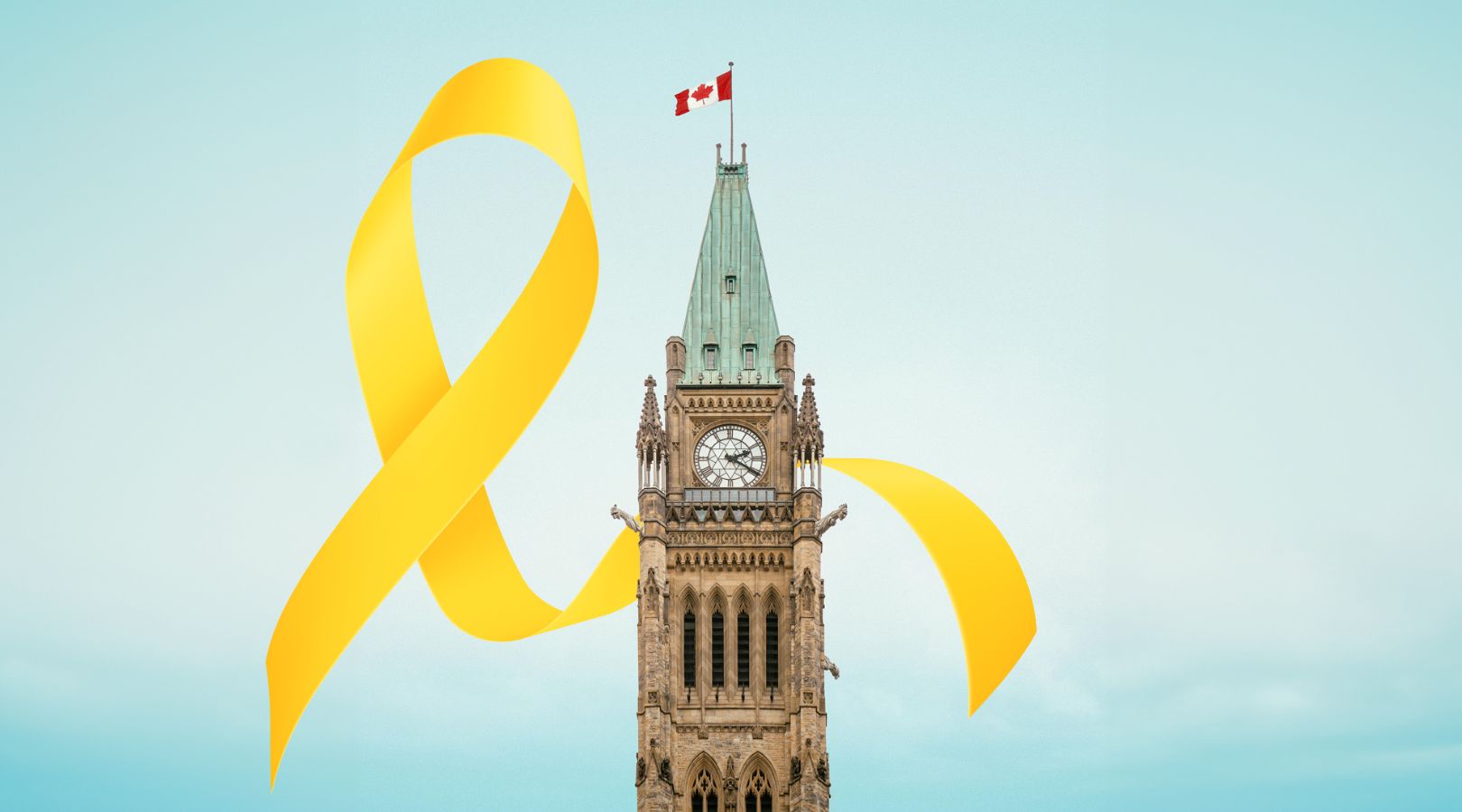Every year approximately 4,500 Canadians die by suicide. Suicide is a top-10 cause of death that devastates families and communities. Yet decades of research demonstrates a host of strategies that can and do prevent suicide. Although many of these are being implemented in Canada, to get the number of deaths by suicide to as close to zero as possible, we need coordinated action. We need a national suicide prevention strategy.

The Short Story Behind This Initiative
Partnerships for Life is a program established by the International Association for Suicide Prevention (IASP). The Canadian affiliate program runs under the auspices of The Canadian Association of Suicide Prevention. It was formed in 2020 in recognition that the best approach to suicide prevention is a coordinated approach with all countries in the world working in partnership. The emphasis of national strategies needs to be a cross-sectoral action that involves focused resources directed at healthcare, and ancillary interventions such as the treatment centre we are working to create with Eli’s Place.
A national strategy also needs to focus on the upstream antecedents of suicide and despair which include poverty, housing insecurity, low wages, social disconnectedness and other factors — all of which contribute to the staggering number of deaths by suicide in Canada. Not only are we hoping that our advocacy will lead to such a strategy in Canada, but we also hope it will be a proof of principle that can be applied to other countries going forward.

The Stark Truth: Canada Lags Behind
Regrettably, at the federal policy level, Canada lags far behind other similarly resourced and even many, more poorly resourced, countries with regard to coordinated prevention strategies. Canada is an outlier among G7 nations due to its lack of a national suicide strategy. It trails more than 30 high-income countries and more than 20 lower- and middle-income countries worldwide that already have national strategies. For example, the United States has had a national suicide prevention strategy for more than 20 years. Working with the data gathered from the past two decades of an articulated prevention strategy, the U.S. is currently working on its third iteration to move the bar even further in terms of reducing deaths by suicide.

Letter to the Prime Minister
On January 31, 2024, at the outset of the first sitting of Canada’s parliament for the new year, a letter was sent to Prime Minister Trudeau. The letter has 121 signatories from 30 countries representing the leaders of suicide prevention worldwide. The letter was also endorsed by the Canadian Association for Suicide Prevention, Suicide Prevention Ottawa, and all members of the Association of Chairs of Psychiatry in Canada. This is an extraordinary result.
The letter reads in part:
“We appeal to Canada to develop and publish a national suicide prevention strategy within the next year.
Suicide is preventable. Yet more than 4,000 Canadians die by suicide every year. This cannot remain the status quo. A growing body of evidence and expert consensus has converged on the conclusion that coordinated whole-of-government efforts and, in particular, national strategies, are the optimal population-level approach to suicide prevention in the 21st Century.”
Adopting a Canadian national suicide prevention strategy will save lives and lower the burden of suicide across Canadian society. You can find the complete letter advocating immediate action on this strategy here.
The advocacy letter, delivered to the Prime Minister’s office with 121 signatories, emphasizes Canada’s opportunity as a leading G7 nation, to become a world leader in national suicide prevention. Dr. Mark Sinyor, Regional Programme Lead for Partnerships For Life in the Americas and Associate Professor at the University of Toronto is optimistic that the growing efforts within Canada could lead to a National Suicide Prevention Strategy in the near future.
“Not only am I hoping that our advocacy will lead to such a strategy in Canada but I also hope it will be a proof-of-principle that can be applied to other countries going forward.” – Dr. Mark Sinyor

Canada Needs a Coordinated Strategy
Expert consensus and existing evidence support the need for a comprehensive, strategic approach to suicide prevention at a national level worldwide. The IASP encourages every country to plan, implement and evaluate a national strategy, at a speed and intensity that are consistent with the country’s needs and resources.
Despite not having a national policy, Canada is engaged in critical research into suicide and its prevention. As Dr. Sinyor has stated: “We are hopeful that this call will add momentum to Canadian efforts to enhance existing support for suicide prevention like the recent 3-digit 988 national crisis line number. Canada needs a coordinated, whole-of-government approach to suicide prevention and we are now well positioned to make that a reality.”
In the words of Professor Rory O’Connor, President of the International Association for Suicide Prevention: “Suicide is a global public health concern, and as experts committed to saving lives, we recognize the significance of a concerted effort on a national level. Efforts such as this from Canada present a real opportunity for positive change.”

Your Call to Action
At the time of writing this blog, our government has not indicated that it will take any steps to respond to the letter and move toward a national suicide prevention strategy.
Your help is urgently needed to ensure that this omission is corrected. Please write to your MP and urge them to tell the government what we all know — that Canada urgently needs a national suicide prevention strategy. Or, you could contact the Prime Minister via this simple e-form and ask him to take action. With your help, we can make a national suicide prevention strategy a reality and protect more Canadians from dying needlessly by suicide.
Eli’s Place will be a rural, residential treatment program for young adults with serious mental illness. To learn more about our mission and our proven-effective model click here.

David Cooper | Eli’s Place Founding Director
David, Eli’s father, is a retired business owner with extensive corporate and non-profit experience. Founder of STUFF Canada, a non-profit created in 1999 to reduce homelessness and poverty in Toronto, David was the 2004 recipient of the New Spirit of Community Award, Canadian Centre for Philanthropy, and the Peter F. Drucker Award for NFP Innovation in 2003. David, a suicide loss survivor, is the co-author of Bridge over the River Why, a guide for parents who have lost children to suicide, and is currently a volunteer grief facilitator for the Toronto Distress Center. David is a Founding Board Member of Eli’s Place.




